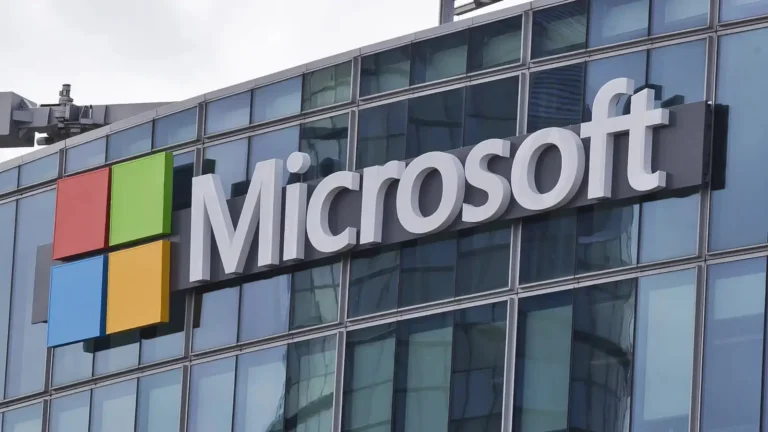
A San Francisco federal court fined Google $425 million in a major privacy case.
Introduction: The struggle for privacy in the digital age on Google privacy case
In today’s digital age, where the Internet and smart devices have become an integral part of our daily lives, the security and privacy of personal data has become a serious concern. And on September 3, 2025, a historic verdict was given in a federal court in San Francisco in which Google, one of the world’s largest tech companies, was fined $ 425 million (about Rs 3,500 crore) for violating the privacy of its users. At the same time, this case is not just a legal battle but a symbol of tension between digital rights, responsibility and personal freedom. And in this article we will present a detailed analysis of every aspect of this case.
Brief description of the Google privacy case
This case is related to a setting called Google’s Web & App Activity, which gives users control over whether Google monitors the activities of their device or not. It was proved in court that Google continued to collect their data even after millions of users turned off this tracking feature. Also, this breach lasted for eight years (2012 to 2020) and involved about 98 million users and 174 million devices. Also the history of the case that this class action lawsuit started in July 2020. And when a group led by Anibal Rodriguez filed a lawsuit against Google. But the case was given class action status by US District Judge Richard Seeborg. Which made it one of the biggest privacy violation cases in the country.
How does Web and App Activity work?
Google’s Web and App Activity is a feature that stores information such as users’ search history, location data, YouTube viewing history, and use of apps. Also, Google uses this data to provide personalized services, improve ad targeting and improve its artificial intelligence capabilities. Additionally, the suit alleges that Google collected data without users’ consent in the following ways: The company continued data collection through a hidden setting even after users turned off the Supplemental Web & App Activity main setting; Google collected data through third-party apps using Google Analytics services through partnerships with apps like Uber, Venmo, Meta, and Instagram.
Table Google Data Collection Methods
Data Collection Method Description Privacy Impact Web & App Activity Search history Location data, app usage User controlled Supplemental Web & App Activity Secret tracking when key setting is off User not aware Third-party apps Uber Venmo, Instagram without user consent but Google Analytics App and website usage data Behavioral profiling And the plaintiffs’ lawyers, led by David Boies, presented the following main arguments But deceptive feature Google gave users the illusion that turning off Web & App Activity would stop their data collection when in fact it did not and Lack of consent Google accessed and used users’ data without their explicit consent and Illusion of control Google was telling users a story of control when in reality they had no control
Table Google’s Recent Privacy Fines
Web & App Activity Case in 2025 collected data even after users turned off tracking, and the Texas Privacy Case in 2024 violated state privacy laws with a fine of $1.4 billion. The Incognito Mode Case in 2024 destroyed data records. Private Browsing Tracking, along with the YouTube Kids Privacy Case in 2025, resulted in a $30 million fine for collecting children’s data. Based on 98 million users, the $425 million fine amounts to about $4.33 (about Rs 360) per user. Which is much less than the $316 per user demanded by the plaintiffs. Illinois Biometric Case Another important case is H.K. et al. v. Google LLC. Which is related to biometric data collection in Illinois. And in this case Google has agreed to a settlement fund of $8,750,000, which will be divided among the residents of Illinois whose biometric data was collected.
Google’s response and appeal plan
Google spokesperson Jose Castaneda issued a statement soon after the verdict saying that the company will appeal the decision. Castaneda said this decision misunderstands the way our products work. And our privacy tools give people control over their data. And when they turn off personalization. So we respect that choice. Google also argues that its privacy policies are transparent and give users control over their data. The company believes that the court did not fully understand the technical aspects and therefore the decision is wrong.
Other privacy cases against Google
The Texas settlement, which earlier this year, Google paid nearly $1.4 billion in a settlement with Texas over allegations that the company violated the state’s privacy laws. Google will settle the Incognito Mode case in April 2024, after it paid nearly $1.4 billion in a settlement with Texas over allegations that it violated the state’s privacy laws. Google agreed to destroy 2025 data records to settle a lawsuit that alleged it was tracking people who were browsing privately in incognito mode. Also YouTube children’s privacy: In August 2025, Google agreed to pay $30 million to settle a lawsuit that alleged it collected personal information from children using YouTube and used it to send targeted ads without parental consent.
The future of google privacy in the digital age
This $425 million case against Google is an important development in the fight for privacy and data protection in the digital age. And it shows that citizens and legal institutions are ready to challenge the power of tech giants and ensure that digital innovation does not come at the expense of consumer rights. But Google has announced that it will challenge the decision. But the case has already sparked public awareness and policy discussion. In the future, we can expect more transparent data collection practices, stronger privacy protections, and more accountability from tech companies. But this case reminds us that personal privacy is a fundamental right that needs to be protected, even in the digital world. As consumers, we have a responsibility to be aware of our digital rights and demand accountability from companies and policymakers.




